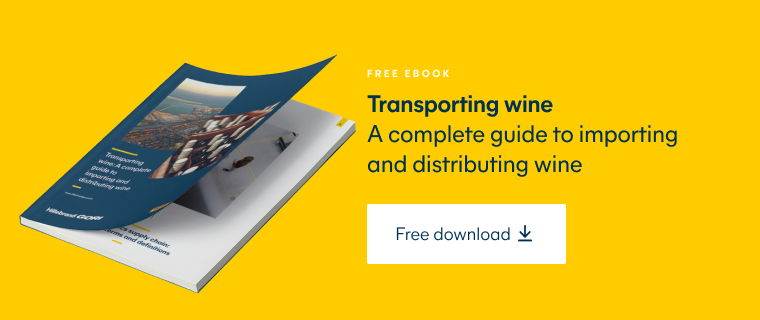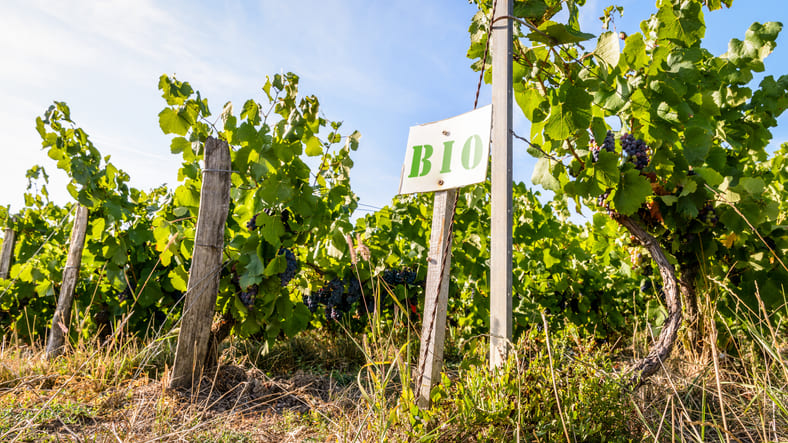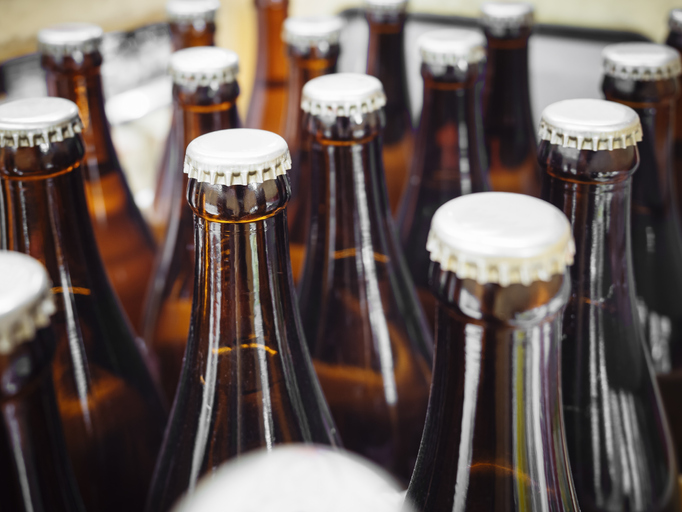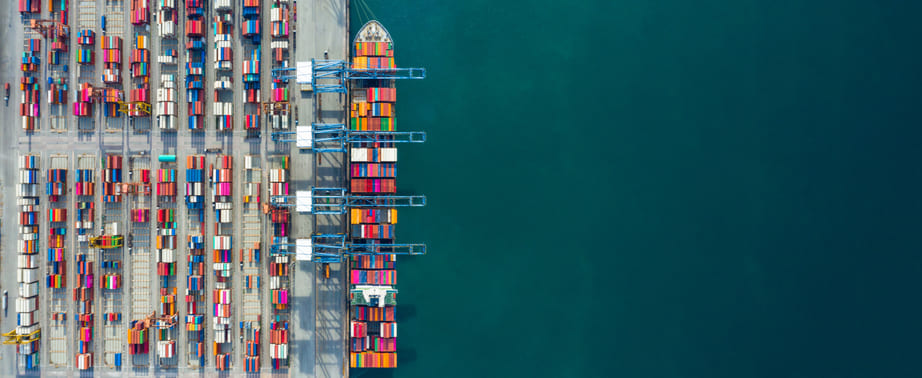Logistics operations: how a freight forwarding service can help
Having strong logistics operations is crucial for meeting demand in your wine, beer, or spirits business. To make sure your logistics operations run smoothly, you need to have the right plan, technology, and resources in place. So if you are struggling with getting your products into the hands of customers when they need them, how can you improve your operations?
What are logistics operations?
Simply put, logistics operations are the movement of your products from where they’re manufactured to where they are enjoyed. They are an integral part of your supply chain, involving managing shipping, stock levels and costs. Every part of your logistics operations, from warehousing to shipping, plays a role in ensuring your business runs smoothly. Getting your logistics operations running efficiently means lower costs, increased profits and greater customer satisfaction.
What are the 4 functions of logistics operations?
Getting the four key functions of logistics right is crucial for keeping your operations to your preferred timescale and budget.
- Predicting demand and procurement
Demand planning helps ensure you have the products you need in sufficient quantities at the right time to successfully fulfil customer orders. This informs when and in what quantities you order when sourcing the product from suppliers or manufacturers, and negotiating the best price. - Shipping
Planning how your products will move from the winery to the importer involves coordinating your supply chain. Shipping goes beyond the physical transportation of the wine, it involves management over documentation such as commercial invoice, packing list, bill of lading and other paperwork required for customs. Different modes of transport will likely be needed for different parts of the journey. For shippers looking to move smaller amounts of goods at a time, groupage or LCL - where your products are shipped alongside other goods in the same container, can speed up deliveries and reduce costs. - Inventory management
Inventory management is the process of overseeing and controlling how much stock you have. It involves tracking inventory levels, ordering new stock, and ensuring that the right amount of inventory is available to meet customer demand while minimizing excess stock that ties up capital and incurs holding costs. - Processing customer orders
Timely order processing helps to ensure that the customer/consumer receives the correct product in a timely and efficient manner. This can be achieved if steps 1 - 3 have been executed well.
Where does freight forwarding come into logistics operations?
Freight forwarding involves moving cargo like beverages around the world, from collection to delivery, on behalf of importers and exporters. Freight forwarders also arrange insurance, customs clearance, and organize documentation. It’s essentially freight that needs to be forwarded onto someone.
Freight forwarders are one type of logistics service provider, but there are many different ones available. When looking for logistic service providers, it can be hard to differentiate between the different options and decide what’s right for your wine or alcoholic beverage business.
Types of logistics services
Logistics operations services can be divided into categories that roughly define what services they provide. There are 5 types of logistics services, from 1PL to 5PL, which offer increasingly greater involvement in your logistics operations and supply chain. ‘PL’ stands for ‘party logistics’, so 3PL, for example, is an abbreviation of ‘third-party logistics’. First-party logistics, or 1PL, companies have only one party in the supply chain. For example, a manufacturer that delivers goods directly to their customer would be a 1PL logistics company.
Freight forwarders such as Hillebrand Gori offer both 3PL and 4PL logistic services. This includes outsourcing transportation, organizing storage, packaging, customs brokerage and freight forwarding. Fourth-party or 4PL logistics providers manage every aspect offers a more comprehensive and integrated approach to the entire supply chain. They manage multiple logistics providers and using advanced technology to optimize operations.
Which logistics option is right for your operations depends on what services you need, and how much control you want to retain over your supply chain. Whatever you choose, a logistics service provider can help make the journey from manufacturer to customer more efficient. So what are the steps involved in a typical logistics journey?
Steps involved in a typical freight forwarding journey
Alcoholic beverages can be shipped globally using either less than container load (LCL) or full container load (FCL) services. There are slight differences in the transport steps involved between the two.
Typical LCLsea shipment journey:
- Collection: Beverages collected from the shipper's door by truck and taken to the a warehouse, where they will be stored until shipping.
- Consolidation: Beverage shipments are loaded into a container ready for transport with other wine, beer or spirits shipments.
- Transport to port: Truck transports the loaded container to the port.
- Customs: Export customs documentation, duties and taxes approved
- Loading: Container is loaded onto a vessel
- Journey (main leg): Container vessel departs from origin port.
- Arrival: Container arrives at the destination port, and customs cleared.
- Transport to warehouse: Truck takes the container to a warehouse.
- Deconsolidation: Container is unloaded (called de-stuffing), and each shipper's pallets separated.
- Delivery: The beverages are delivered to the consignee, often by road but sometimes by rail.
Typical FCLsea container journey:
- Collection: An empty container is delivered to the exporter for loading
- Transport to port: Truck transports the loaded container to the port.
- Customs: Export customs documentation, duties and taxes approved
- Loading: Container is loaded onto a vessel
- Journey (main leg): Container vessel departs from origin port.
- Arrival: Container arrives at the destination port, and customs cleared.
- Delivery: The container is delivered to the consignee, often by road but sometimes by rail.
How can freight forwarding streamline your logistics operations?
Freight forwarders like Hillebrand Gori can help make every aspect of your logistics operations more efficient. They can offer expert advice on reducing transport costs, from freight charges to accessorial charges. If the efficiency of your warehousing operations could be improved, freight forwarders can advise on how to create a leaner supply chain and inventory wine, beer or spirits. For optimizing your supply chain, freight forwarders can help you in choosing the best transport route for your location, product and timescale.
Groupage service customer story with Galerie K
Efficient logistics operations means tailoring your shipping to your business needs. In an interview with Ryoko Mainguy, executive assistant at Galerie K, she explains how flexibility in the Hillebrand Gori groupage service has helped them deliver Japanese alcoholic beverages across Europe.
What should people know about your company Galerie K?
Galerie K was founded in 2010 in Paris. We import and distribute premium Japanese alcoholic beverages (mainly saké) to France, but also Germany and Luxembourg. Our founder, Keiichiro Miyagawa also organizes training sessions on saké and tasting sessions.
Q. How long have you worked with Hillebrand Gori and tell us about your experience working with them?
A. We have been working with Hillebrand Gori since 2015. Hillebrand Gori takes care of everything: we send the order to Hillebrand Gori Japan and they organize transport and customs clearance with France. Before they introduced us to LCL services we were shipping full containers and also a lot of our shipments were transported by air which has a higher carbon footprint.
“What we love about the groupage service is that we do not have to worry about quantities. We can ship whenever we need.”
Q. What has your business benefited from by switching LCL services?
A. In terms of price, it’s more attractive to ship LCL than FCL, depending on the amount of pallets we need to ship. The fixed schedule of sailings is also a big advantage as we don’t have to worry about our quantities either.
Q. How does the LCL service work for you?
When the cargo from the suppliers arrive in Tokyo, Hillebrand Gori palletise everything. The groupage service allows Galerie K to ship more pallets if they need to, using a 40’ reefer service which can hold 11 pallets, compared to 8 pallets in a 20’ FCL.
“Another advantage of LCL shipping for Galeri K is that they have no additional expenses such as storage costs. As soon as the cargo arrives in Le Havre, it is transported via reefer pick-up truck to Rungis and deconsolidated within 24 to 48 hours”
Tailor your logistics operations to suit your business
Galerie K’s logistics rely on flexibility and efficiency. For fresh saké, which has a relatively short optimal use-by window of 6 to 9 months, nimble logistics operations are key. Using a groupage service allows Galerie K to adjust the quantities they ship to the demand.
By removing the need for storage and switching shipping methods, adjusting their logistics operations has cut their carbon footprint and reduced costs too. Find out how your logistics operations could run more smoothly. Contact us today for a logistics quote.
How can we help your business grow?





